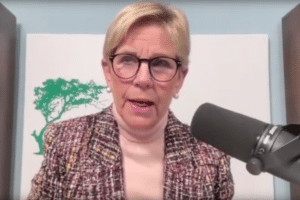Loneliness—the feeling of social isolation—can strike anyone at any time in their lives but, for older people, the experience can have a long-lasting and devastating impact. As we grow older, we often have to contend with a combination of events and changes that can lead to us becoming more isolated. But is loneliness in old age a growing problem?
A loneliness epidemic?
Loneliness among older adults is a problem that has indeed been growing in recent years, especially in developed countries.
In the UK, recent
research revealed that more than two million people over the age of 75 in England were living alone. Even more starkly, the study found that more than a million older people frequently go for over a month without speaking to a friend, neighbor, or loved one. Meanwhile, in the USA, a 2020
report disclosed that a quarter of Americans aged over 65 are now described as being socially isolated.
So, why is this happening?
An aging population
A major factor in the perceived growth of this issue is the aging population, which is increasing across the world at an unprecedented rate. According to the
World Health Organization, the number of people aged 60 and over in 2020 stood at 1 billion. By 2050, this will have doubled to 2.1 billion.
People are living longer, and, as a result, the number of elderly individuals is increasing. In demographic terms, it’s a tsunami, and it will lead to growing issues of loneliness and social isolation. Although living longer is a positive thing, it also means that elderly adults are more likely to face the loss of their spouses, family members, and friends.
Decreasing family sizes
As our population gets older, the size of the average family is getting smaller. In the UK, the phrase “2.4 children” is an often-quoted number when it comes to the average birth rate, but it stopped being true way back in 1985. These days, it’s closer to
1.9 children. In the USA, a 2014 report found that in 1976, 36 percent of women in their early 40s had four or more children. By 2014, that figure had dropped to
12 percent. These days, it’s more common in the USA to have just 2 children.
The declining birth rate is being driven by a mix of factors. Education, healthcare, and housing are now more expensive than ever, making a large family unaffordable for many. Social norms have also changed in the developed world. Women today enter education and pursue careers in far greater numbers than in previous generations. This means that they are now choosing to start families later or to not start at all. Improved access to family planning and contraception has allowed couples to plan how many children they have. These factors have all fueled a drop in the birth rate.
Smaller families mean fewer children and grandchildren to visit and care for their elderly relatives. This has naturally increased levels of loneliness and social isolation for many older adults.
Dispersed families
In modern society, families are more geographically dispersed than ever before. This has directly contributed to a rise in the number of lonely older adults. As people move to pursue jobs, education, and other lifestyle-related choices, families become separated, often by huge distances. Families are also, arguably, becoming less close than they once were, and it’s not all about physical distance. Estrangement between older parents and their adult children seems to be
increasing. Again, there is a complex mix of factors at play. Lifestyle choices and cultural, social, and political differences have always caused familial conflicts, but perhaps these differences are now starker than in previous years.
The digital divide
Modern technology has wrought major changes to how people communicate with one another. In the digital age, there are more ways to communicate than ever before, but these changes have come at an incredible pace. Many older adults didn’t grow up with the technology, so they are naturally less tech-savvy. This means that a digital divide has opened up. Older adults can often feel very isolated in a world where communication increasingly takes place online and on social networks.
The consequences of loneliness in old age
Many studies have demonstrated the serious negative impact that loneliness in old age can have. Older individuals who live alone and have socially isolated lives are far more likely to suffer mental health issues such as anxiety and
depression. Cognitive function can also be compromised, leading to memory loss and dementia. Older individuals are also more prone to developing chronic physical health problems. Heart disease, strokes, high blood pressure, and a weak immune system often result from social isolation.
Combatting loneliness in old age
Loneliness is a common problem for older adults, and it looks like the issue will only become more prevalent. Fortunately, there are many ways to address it. Staying active and engaged in the community by joining clubs or groups, volunteering, and simply attending events are all great ways of fighting loneliness. Learning to use digital technology is another wise move. Video calls and social media can help older adults to stay connected with friends and loved ones, even when they live thousands of miles away.
Families can grow apart for many reasons, but sharing stories is a powerful tool that helps bring them together, even across great distances. When we share our family histories, experiences, and anecdotes, we connect the lives of our loved ones and friends with our own. Putting these recollections down on paper in a memoir can help families to better understand one another, celebrating both our shared values and our differences. Collecting stories in a memoir can also bring family members together to reminisce and laugh, strengthening their bonds in the process. What a wonderful way of combatting loneliness in old age!
Interested in having someone write a book about your life? Get in touch with us. The
LifeBook Memoirs team is here to help you at every stage of your memoir project. Whether you are ready to commission a project or if you have questions, just use the form below, schedule a call below, or call us.
Written by the LifeBook Memoirs editorial team




